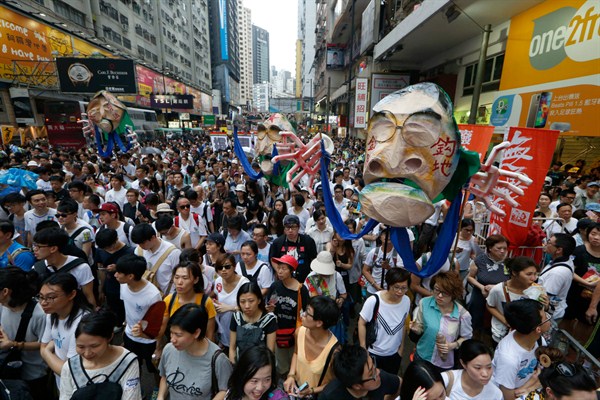Hundreds of thousands of pro-democracy demonstrators took to the streets of Hong Kong last week on the anniversary of its handover to China, and more than 500 were arrested. In an email interview, Simon Young, a law professor at Hong Kong University, placed the protests in the context of Hong Kong’s relationship with the mainland.
WPR: How has Hong Kong's status within China developed since the end of British rule in 1997?
Simon Young: Hong Kong’s status within China, known as “one country, two systems,” grew out of the 1984 Sino-British Joint Declaration framework and is formally defined in the Basic Law, which serves as Hong Kong’s constitution. The Basic Law guarantees a high degree of autonomy for Hong Kong and aimed to preserve Hong Kong’s existing way of life under British rule, including its capitalist system. However, the Basic Law conferred significant powers on China, and in many areas the division of power was unclear. What mattered was how the Basic Law was implemented in practice.

